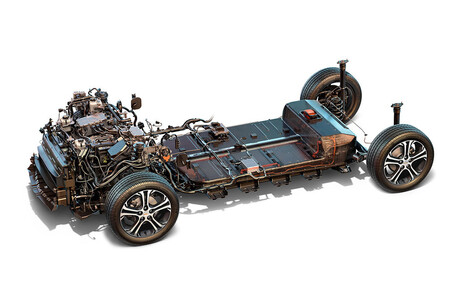Chevrolet details 2017 Bolt EV drivetrain
This is the 2017 Chevrolet Bolt EV—kind of.
This is actually the Bolt EV, but the picture above is what matters most about Chevrolet's hotly-anticipated all-electric hatch.
- Also: A 383-km range for the 2017 Chevrolet Bolt EV
- Also: The 2017 Chevrolet Bolt EV to start at $42,795 in Canada
And now we have the details about what will motivate it as Chevy aims to take on the likes of the Nissan Leaf.
Unlike the Chevrolet Volt, which features a hybrid-like combination of gasoline and electric motors, the Bolt EV boasts an all-electric drivetrain as it cruises to an estimated range of about 320 kilometres.
Featuring a single high-capacity electric motor, the car makes 200 horsepower and 266 lb.-ft. of torque, the former of which is only 50 horsepower less than the combined system output of the Volt.
Power is delivered through through a shift-by-wire system that sends signals to the Bolt EV's drive unit to manage horsepower and torque output based on drive mode selection and accelerator inputs.
Underpinning the entire car is a 60-kWh lithium-ion battery pack that boasts 288 cells spread over five sections, and weighs a combined 960 lbs.
"You usually have a battery cell that delivers either the desired levels of energy or power, but not traditionally both," Gregory Smith, Bolt EV battery pack engineering group manager, said in a statement.
"With this cell design and chemistry we were able to deliver a battery system with 160 kilowatts of peak power and 60-kilowatt hours of energy."
The car also features a regenerative braking system and a standard 7.2-kilowatt onboard charger.
Chevrolet claims a "typical commute" of about 80 kilometres can be recharged in less than two hours.
The Bolt EV also features an optional fast-charging system that can power the battery for 145 kilometres of range in 30 minutes.
Expect more details closer to launch, but so far we'd say things are looking pretty good.
